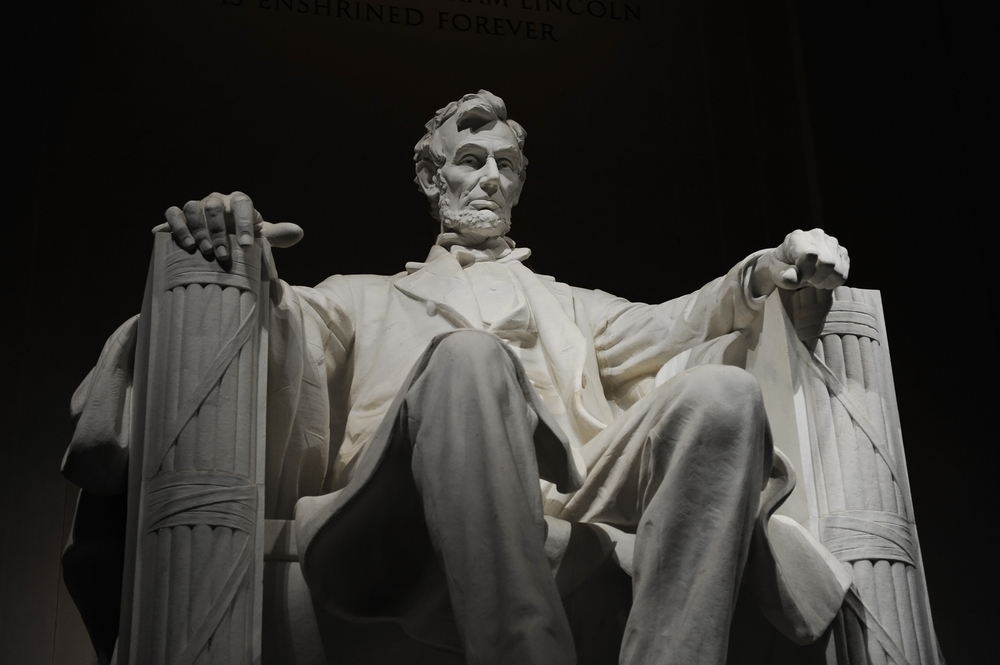The Civil War began because wealthy Southern Planters were beside themselves that an Anti-Slavery candidate had won the Presidential Election. Outside of former President John Quincy Adams, there had always been a sitting President who had been either a Slave owner himself or was unapologetically pro-slavery, if only for financial reasons.
Once the Civil War started, Lincoln stated repeatedly that he had no intention on freeing ANY slaves. However, Southern Planters found Lincoln unconvincing. The fact that he was on record as saying that he believed slavery was morally wrong was more than enough to suggest that Lincoln was not to be trusted. I mean, what planet was he from anyway? Doesn’t he know how much paper we are stacking down here?
December 6, 1860 South Carolina signed into a law announcement that they were breaking from the Union. Church bells rang out. People celebrated in the streets. “The roar of the crowd shook the very building, reverberating, long-continued, rose to Heaven and ceased only with the loss of breath.”
Lincoln continued, to no avail, to try to convince the South that he wouldn’t free any slaves in hopes of avoiding war.
Nope. Not happening.
Soon the South formed its own Government under Jefferson Davis and started placing cabinet members.
And about going to war with the North, no problem. The South honestly thought that a war with the North couldn’t last longer than 3 months, tops. Not only did they see Northern men as weak, more importantly, they saw themselves as “natural soldiers, brought up on horseback, with guns in their hands” they said. “We could bring the whole world to our feet.”
Once the war was underway, several things occurred that the Confederacy had not anticipated. First, not all White men in the South supported this war. It was seen, particularly by poor whites that had not benefited at all from the institution of slavery, as being a war where they were being asked to give their lives to protect the financial interest of extremely wealthy Planters. In fact, North Carolina state legislator Kenneth Rayner told his colleagues openly that his constituents, “that did not own slaves were swearing that they would not lift a finger to protect rich men’s Negroes.” Some even went further and said, “The south was wrong & corrupt & ought to be subdued.”
Well then.
Resistance to the war only grew stronger among those who were already against it once the war lasted longer than the 3 months the South had anticipated. By the end of the first year, it became clear that the Confederacy’s survival would depend on starting a national conscription system to get more able-bodied white men to join the fight. Instituting a draft is never popular but it only got worse when President Davis, under pressure from local planters, put an exception in the law exempting Slave owners who owned more than 15 Slaved from being drafted.
Lincoln reminded them that The Fugitive Slave Act granted by the United States Constitution did not govern the United States relations with a “foreign country”, which is what the South now claimed to be.Poor whites went ape sh!t. Excuse my French.
“The law now makes the rich man superior to the poor, forcing the poor to the battle fields, showing the world that the rich is too good to become food for bullets.”
Then an additional factor came into play that the Confederacy hadn’t counted on, the self-centeredness of the wealthy Planters who had started this war in the first damn place.
The Confederate government figured, why not have the enslaved Africans we own rebuild the roads, tend to the wounded, feed the troops, fortify the bunkers, freeing up the able-bodied White men we do have to engage in defense of the South? Well, it sounded like a great idea, but since the South didn’t have any packs of wild roaming Negroes to draw from, there was only one way to get them; slave labor would need to be voluntarily offered up by the same wealthy Planters that had pressured Davis to make them exempt from being drafted. Conservative Southern Planters had always insisted on government being small and weak so that it wouldn’t be able to tell them what to do with their human property. Well, when they setup the Confederate government under Jefferson Davis it was built on this fundamental idea of small, weak government is the best government.
Well that idea came back to bite them in the a$$.
When Jefferson Davis called upon the Planters of the South to make a sacrifice, to offer up some of their own enslaved Africans to help support the war effort, he reminded them that not only was it their “patriotic duty” to do so, but they would be also “advancing your own interest by preserving your property and aiding the army to protect the home and property of the owner”. The Confederacy learned pretty quickly that voluntary cooperation from wealthy Planters would never happen. Their selfish, myopic personal interests trumped the needs of the confederacy as a whole. In fact, at the mere suspicion that they might be forced to give up some of their slaves for the war effort, some Planters threatened to pull out from the Confederacy, as well. They had become so accustomed to getting whatever they wanted, whenever they wanted, however they wanted, that they had lost any rational understanding of doing anything for the good of anyone other than themselves.
This is why, ultimately, Lincoln freed the Slaves, to prevent the South from using enslaved labor to support Confederate troops by rebuilding roads, repairing equipment, tending to the injured, preparing meals and feeding the troops. Lincoln had no jurisdiction over the Confederacy, but began telling his Generals that when they took over an area to free the enslaved Africans.
When the Southern Planters told Lincoln that what he had ordered was illegal and that the Fugitive Slave Act specifically mandated that the United States government return any runaway Slaves to their rightful owner, an extremely frustrated Lincoln reminded them that The Fugitive Slave Act granted by the United States Constitution did not govern the United States relations with a “foreign country”, which is what the South now claimed to be. So please shut the #$%# up.
As enslaved Africans rejoiced as they were being emancipated by Union soldiers throughout the south, Planters actually stood and watched utterly devastated as they actually felt that they were being betrayed by their slaves who were tripping over each other to get their newfound freedom.
“Our “people” (enslaved Africans) have repaid their master’s many kindnesses with treason. They (Negroes) have proved themselves to be, indeed, immoral wretches without loyalty or conscience.”
The reality is that if they had not been so irritated and hostile towards Lincoln initially they might still have their slaves to this day. Slaves were only freed to do what Lincoln had said all along was his number one goal, preserve the Union. The South forced his hand and in order to preserve the union he changed his position to head off their attempt to use their enslaved Africans to help them win a war that he wanted to avoid in the first place.
So did Lincoln free the slaves? Yes. Was that the plan? Never.
Honoria Cannon wrote in 1863 in the full throes of disgust from watching her slaves walk away from her Plantation that, “Whites would certainly be better off without them (slaves), tho the learning to do our own work would be hard.”
I bet it was.

